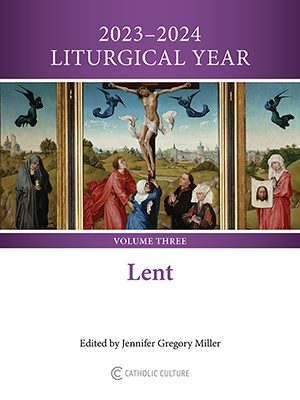Using an Oath of Fidelity
By Dr. Jeff Mirus ( bio - articles - email ) | Jun 04, 2007
George Cardinal Pell will require that all senior staff in the Catholic school system in Sydney, Australia take an oath of fidelity to the teachings of the Catholic Church. This is part of his pastoral plan to rejuvenate Catholicism in his diocese over the next four years. One part of the plan is to dramatically improve the fidelity of Catholic education in an effort to galvanize lukewarm Catholics.
According to LifesiteNews, principals and religious education coordinators will have to swear their fidelity to traditional Catholic doctrine, including the Catholic position on controversial social issues such as homosexuality, contraception, and the ordination of women. This is one of the more striking implementations of a fidelity oath in the contemporary Church.
The news is heartening. It goes without saying that any bishop has a serious obligation to ensure that both his priests and the personnel guiding Catholic schools should be fully committed to the teachings of the Church. Ascertaining whether a candidate does or does not accept these teachings is perhaps the most critical first step in the recruitment process. An oath does not guarantee fidelity, of course, but it does highlight the expectation of fidelity. It puts potential mainstream dissenters on notice, and it militates against the culturally confused.
In other words, an oath of fidelity is immensely clarifying. When I joined Warren Carroll in founding Christendom College in 1977, we implemented an oath of fidelity from the very first, renewed annually, as a condition for employment. Those truly devoted to the Magisterium of the Catholic Church are not reluctant to take such an oath; they are proud to do so. There are now perhaps a half-dozen or so colleges around the United States that do the same, but I have not heard of any parochial school systems doing it before now.
I should emphasize that an oath of fidelity does not necessarily mean that non-Catholics can never be employed in Catholic educational institutions. There can be good reasons for using the services of non-Catholics in various capacities. But for those running the schools, for the preponderance of the faculty, and for anyone in a sensitive formative position, a deep commitment to Church teaching is critical to the very identity of a school. If those who run a school are themselves deeply committed to a Catholic vision, they will make wise decisions about when they can employ non-Catholics, and when they cannot, just as they will make wise decisions about the kinds of Catholics they employ.
But there is something more. From those claiming to be Catholic, authentic Catholicism must be demanded. For a school to operate in a Catholic way, those who are running it have to know—and have the right to know—the doctrinal commitments of each person in each position. If a particular person in a particular position claims to be Catholic, then he had better deliver the goods. If he intends to deliver the goods, he will make no trouble about taking an oath of fidelity. And if he does not deliver the goods, the same oath of fidelity will provide a convenient mechanism for terminating his contract.
Yes, an oath of fidelity really is immensely clarifying.
All comments are moderated. To lighten our editing burden, only current donors are allowed to Sound Off. If you are a current donor, log in to see the comment form; otherwise please support our work, and Sound Off!









